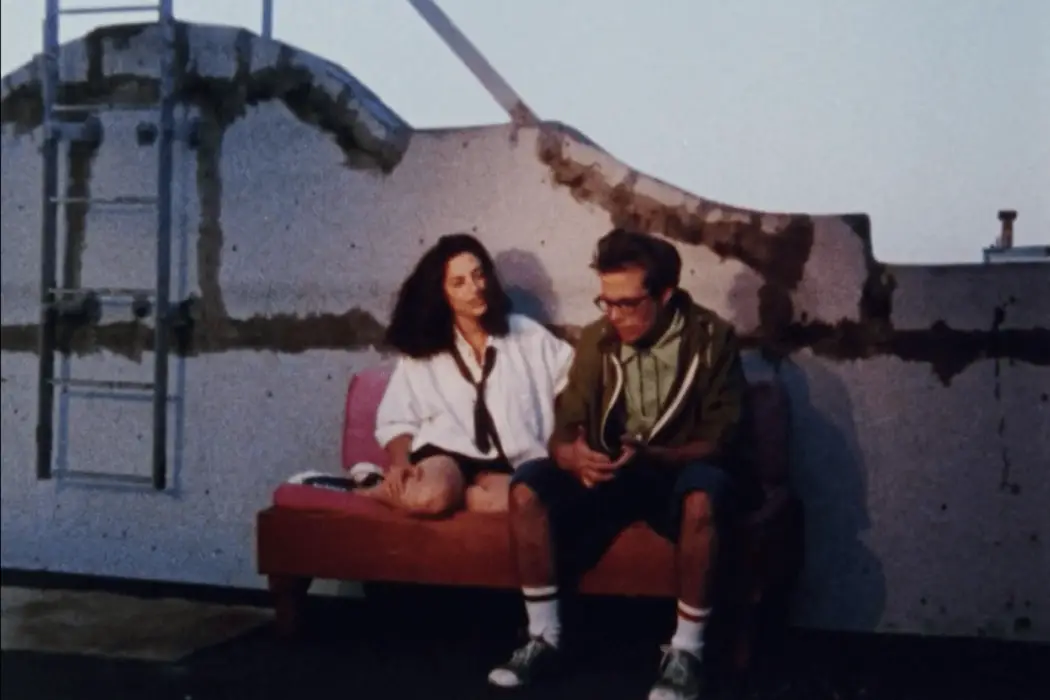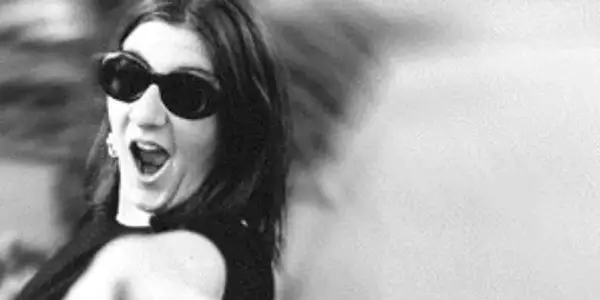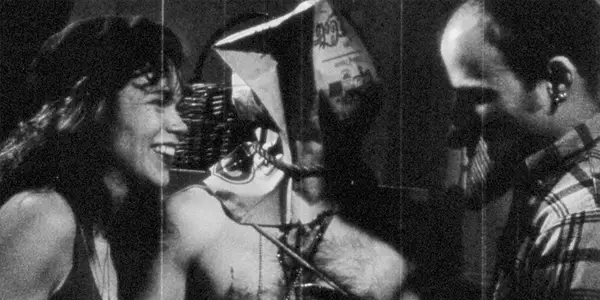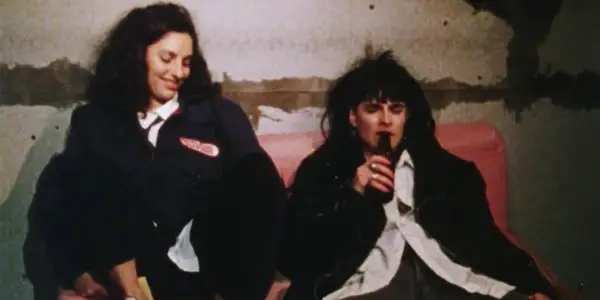Paracinema Fest 2018: Looking Back At The Films Of Sarah Jacobson

Alex is a 28 year-old West Australian who has a…
Writer/Director Sarah Jacobson has long been regarded as the DIY Queen of Independent cinema, despite only having one feature and several shorts to her name. Premiering earlier his year at Alamo Drafthouse’s Fantastic Fest and now arriving at the Melbourne genre festival Paracinema Fest, AFGA’s (American Film Genre Archive) 2K restoration of her two central films – the feature Mary Jane’s Not a Virgin Anymore and its accompanying short I Am A Teenage Serial Killer, have breathed new life into her legacy, allowing a whole new audience to discover the punk-rock filmmaker’s important and ground-breaking work.
A graduate of the San Francisco Art Institute, Jacobson very quickly made a name for herself through her endless enthusiasm and passion for the arts, eschewing traditional Hollywood systems in order to do everything herself – writing, directing, producing, camera operating, editing and even distribution were all handled by her, with her biggest helper being her mother Ruth Ellen Jacobson, who she started Station Wagon Productions with (both of her films fall under this label).
During a time where Hollywood was being invaded by a new wave of young, emerging independent artists such as Kevin Smith, Steven Soderbergh and Allison Anders, Jacobson still insisted on doing things her own way, a willful path she followed until her career was unfortunately cut short in 1995, when she died at the tragically young age of 32 from cancer.
I Was A Teenage Serial Killer (1993, short film)
In hindsight, Sarah Jacobson’s incomparable and insightful achievements have eclipsed most of her American contemporaries, even if her name isn’t quite as synonymous as the directors of those films. At a rapid 20-minutes, her 1993 short I Was A Teenage Serial Killer lays down all the foundations that her sole feature would build upon. It’s centred around a sexually-liberated but frustrated teenager who decides to transcend her oppressed place in society by literally murdering any man who wrongs her, whether it be cat-calling or terrible sex, heinous acts all expressed in an experimental style of low-contrast black and white photography. It’s an unsubtle story, and whilst its technical aspects are definitely dated, her feministic fury and assured handling of humanistic issues are still wholly relevant, instilling the picture with a sense of limitless vitality.

Although it may seem downright predictable to bring up the #Metoo Movement in reference to any female-lead film nowadays, Kristin Calabrese’s final words, when on the verge on killing a man with a broken beer bottle, “I’m done killing men, I’m gonna do something worse – I’m going to tell my story” seems like a passionate call to action which regrettably took too long to start being acted upon. Even the current age of incels and mansplaining is touched upon, when our frustrated protagonist is jeered on her “great ass”, and after deftly ignoring the sexist comment, is told that “you say thank you when someone pays you a compliment”. It’s angry, it’s blunt, and much like the feature film that followed it, is a perfect visual encapsulation of the 90’s punk attitudes and DIY artistic expressions that Sarah Jacobson became the Queen of.
Mary Jane’s Not A Virgin Anymore (1998)
Mary Jane’s Not A Virgin Anymore follows in these footsteps, but unlike her previous short, she manages to reconcile a relatable character drama with her political pre-occupations, giving audiences both a liberating war-cry wrapped within a tale of one woman’s ascension into maturity. Uncompromisingly modern in its tirelessly rebellious spirit, aesthetic experimentation and eccentric observation as it is old-fashioned in its use of the traditional coming-of-age formula – it’s every bit of frank as its title implies.

Working in a dilapidated downtown movie theatre with a staff of mismatched misfits, Mary Jane’s (Lisa Gerstein) story begins right after the titular activity has commenced; she is no longer a virgin, and unlike the movies she sees at work and wishes to make one day, her first sexual experience is one of horrendous disappointment, not quite the magical time that Hollywood promised it would be. The sugar coating of the silver screen compared to the harsh reality of real life forms the thematic backbone of Jane’s final days before she heads off to college, with each of her different experiences, whether it be her first heartbreak, grief, house parties and more, being matched with the opposing “Hollywood” versions of those events, a searing indictment of the terrible fashion that Sarah Jacobson felt teenagers were being represented on-screen.
Every new encounter, interaction and conversation provide a new step forward towards Jane’s inevitable change, that her often frustrating but comfortable lifestyle is all about to end. Jacobson’s script, a blend of catchy dialogue and broad beats, dared to base its drama in feministic observation rather than a standard hero’s journey. She was more interested in the ebbs and flows of human relations, the mechanisms by which people can accommodate their own disappointments and traumas and form new relationships in the most unusual of places. For this reason, I wouldn’t be surprised if this was one of the films Greta Gerwig caught before writing and directing her first feature, Lady Bird.
The biggest reason for Jacobson‘s continued reverence is her treatment of her female characters, who, in a film which is essentially a series of conversations in different locations, get to talk freely about a whole number of various (often taboo) topics; masturbation, sex, rape, teen pregnancy and more get addressed in candid but comedic ways, a continued demystification of mainstream cinema’s ambivalent approach to such subjects. Even Mary Jane’s manager (and key father figure) Dave (Greg Cruikshank) is presented as an openly gay man, and neither the film or the characters within it ever bring it up or treat him differently for it.

Its low budget restrictions are obvious, even in its restored state the film’s audio echoes and the visuals are as rough and crumpled as the matinee employee’s uniforms. Captured in grainy photography, the scratchy but charming visuals are a true representation of early 90’s independent cinema, a look which recalls the early work of Penelope Spheeris and Richard Linklater, most notably Spheeris’ landmark documentary series the Decline of Western Civilisation. The savage documentary aesthetics lends an unwavering sense of realism, and matched with Jacobson‘s lack of sentimentality, renders this world in the real, positioned to the examine the generation of 90’s teenagers on their terms.
Sarah Jacobson’s Work: Conclusion
In its initial 1997 release, Joe Leydon for Variety dubbed the film “a hopelessly amateurish GenX comedy suffused with the self-satisfied air of something made by and for a small group of friends.”, a straight opposition to Roger Ebert’s glowing review, who met with Jacobson when the film played at the Chicago Underground Film Festival, a major moment in the film’s short release. Like most independent films of the 80’s and 90’s, the lack of any real physical release or theatrical release has meant that Mary Jane’s Not A Virgin Anymore has languished in obscurity for years, given the occasional festival retrospective or bundled within a female filmmaker tribute.
Hopefully AFGA’s much-needed 2K restoration of Sarah Jacobson’s brief but brilliant filmography, a fleeting glimpse at a great artist who was taken too soon.
What do you think of the groundbreaking work of Sarah Jacobson? Let us know in the comments!
Does content like this matter to you?
Become a Member and support film journalism. Unlock access to all of Film Inquiry`s great articles. Join a community of like-minded readers who are passionate about cinema - get access to our private members Network, give back to independent filmmakers, and more.













